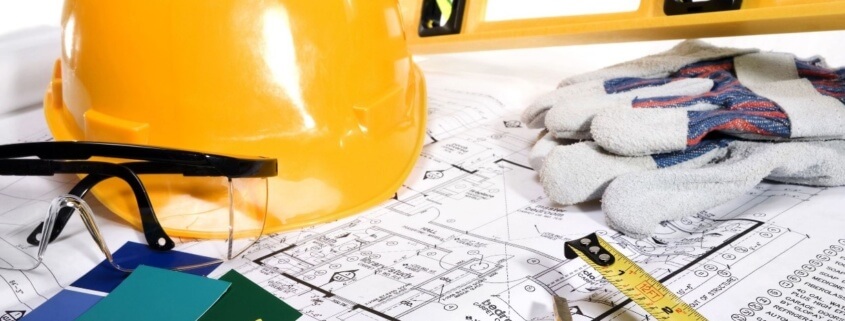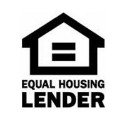Google 5-Star Rated Direct Hard Money Lender
Fix and Flip Loans: Money Lenders for Flipping Houses
A “fix and flip” is an investment in which a run-down or distressed property is bought at a low price, renovated, and sold at a higher price. It can be a lucrative real estate investment—some investors build whole careers on fix and flip projects.
Fix and flip projects are always risky. For one, investors must find ways to renovate and beautify a run-down house without incurring high remodeling costs. And, even when a house has been fixed up, there’s no guarantee that it will rise significantly in value—it the value rises at all.
But the main risk is in the initial purchase of the property. Even the most debilitated properties may require a hefty up-front cost, and it’s crucial that you acquire the appropriate amount and type of funding.
No matter, fix and flip financing is both common and fruitful. If it wasn’t, then house flipping wouldn’t be such a popular real estate activity across the country.
Let’s examine fix and flip financing:
- What is a Fix and Flip Loan?
- Types of Financing for House Flipping
- Other Types of Loans
- Best Loan for House Flipping
Check out this resource to learn more about fix and flip financing, and how to proceed after you’ve received financing.
What is a Fix and Flip Loan?
Most fix and flip projects are financed via loans. There are a variety of loans that may be acquired for a house flipping project, and there are slew of lenders. Not all loans and lenders are equal. If you plan on house flipping, it’s important you know exactly what loans are at your disposal, and who offers them.
Types of Financing for House Flipping
Bank secured loan
Banks are a common lender in the United States. Unfortunately, banks don’t typically offer loans that are optimal for fix and flip projects.
Most banks don’t offer short-term financing for house flipping. They prefer to finance properties that will be held long-term because they get more money from long-term mortgage payments. If a bank does decide to offer a fix and flip loan, the loan often comes with strict terms and conditions that aren’t agreeable to the investor.
Investors want to sell the renovated property as soon as possible—in fact, most flipped houses are sold within a year following their purchase. Investors want to sell quickly so they can pay back their loan fast and avoid paying lots of interest. They must also pay more property taxes the longer they hold the property. Thus, investors need short-term financing.
Hard money loan
A hard money loan is the most popular way of financing a fix and flip. Hard money loans are usually short-term loans that must be paid off within 2 months to a year. They’re generally riskier than a secured loan, so their interest rates are higher.
Your hard money loan may be determined by two different ratios: LTV or ARV.
LTV is “Loan to Value.” This ratio calculates the loan amount as compared to the value of the distressed property. Most LTV loans are offered at 65% to 80% of the property value.
ARV is “After Repair Value.” This ratio calculates the projected value of the property after renovation has been completed—the value is assessed by an appraiser. Most ARV loans are offered at 70% of the projected value of the house after renovation.
As you can see, neither type of hard money loan is offered at 100%. Investors are always expected to contribute some of their own funds to purchase of the property they want to flip.
Other Types of Loans
There are a few other types of loans that may be used for house flipping. They’re not as optimal as hard money loans, but they might be good options under certain circumstances.
Crowdfunding
The 2013 JOBS Act (Jumpstart Our Business Act) made it legal for investors to utilize crowdfunding to finance fix and flip projects.
With crowdfunding, those who contribute financing may be given a stake in the project, typically their repaid contribution plus interest, but they could potentially receive other perks.
401K loan
You can borrow money from your 401K to finance house flipping. After the house is flipped, you pay back the borrowed money to your 401K, plus interest. Your 401K can’t make any investment gains from the house flip, only gains from accrued interest.
Remember, a 401K is a retirement account, so you might face a penalty if you withdraw money before you’re 55 years old. But 401K loans provide you with fast money—sometimes you can receive it within a few days—and they’re also usually short-term, which is necessary for fix and flip projects.
Still, due to the risks associated with house flipping, many investors feel uncomfortable about taking a loan—and possibly a loss—from their own retirement account.
Home equity line of credit
In similar fashion to a 401K loan, you can also borrow against the available equity in your home.
You must have an existing property, and the amount that you owe on the property must be less than its value. Here’s a quick formula that will help you determine your loan amount:
Value of property – amount you owe on property = new value.
You can typically borrow up to 85% of the new value; so, the less you owe on your home, the more you can borrow.
Opening a line of credit from your home equity is a risky venture because your home is used as collateral. The risk of losing an existing property (and one with much of its mortgage paid off) is enough to keep many investors from using this kind of financing for house flipping.
Bridge loan
A bridge loan is used by investors to purchase a new property before they’ve sold an existing one.
Let’s say that you’ve stumbled upon a good property at a great price. You want to purchase it, but you don’t have the immediate funds. To get the money, you’d have to sell an existing property that you own. But the existing property could take months to sell, and by then the new property might be purchased by another investor.
That’s where a bridge loan comes in handy. A bridge loan is a short-term loan that’s paid off between 2 weeks and a year—which is perfect for house flipping. A bridge loan provides an investor with money to purchase the new property. The loan is paid back with money the investor gets when the old property is sold.
Like hard money loans, bridge loans usually have high interest rates. Unlike hard money loans, bridge loans are only given to purchase a property. You can’t fund property renovation with bridge loans. This makes bridge loans less ideal for house flipping than hard money loans.
Cash out refinance
A cash out refinance is when you refinance an existing property to finance a new property.
It’s similar to opening a home equity line of credit. With a cash out refinance, however, your original mortgage must be paid-off before you can borrow equity from it. When you receive a new mortgage, the difference between it and your old mortgage can be taken out as cash. Here’s the formula:
New mortgage – old mortgage = available cash
Loans are offered at up to 75% of your existing property. The higher your property value, the more cash you can receive from a refinance. There are no restrictions on what you can use the cash for, so house flipping investors can use it to finance a fix and flip.
Unfortunately, cash out refinance loans are long-term loans. They’re often set for 15 to 30 years, and qualifications are more strict than the qualifications for hard money loans. For those reasons, they’re not ideal for house flipping.
Best Loan for House Flipping
A hard money loan is the most ideal way to finance a fix and flip.
Hard money loans are short-term loans and you can receive the money soon after you’ve applied for it. Thus, they’re better optimized for the quick turnaround times required by fix and flip projects.
Interest rates may be higher than other options, but you’ll avoid the unending months of interest that come from long-term loans and receive flexible funding when you need it.
Who provides hard money loans?
Most banks don’t supply hard money loans. You might have to seek them from a hard money lender. There are a few hard money lenders nationwide, but due to differences in local real estate laws (hard money loans in Texas might come with different stipulations than ones in California), most hard money lenders only operate statewide. Look for a statewide lender first before you seek nationwide lenders.
Hard money lenders like Source Capital are great resources. Their hard money loans are specially optimized for fix and flip projects and you’ll get competitive rates!
Although it’s impossible to avoid risk during a house flipping project, a quality loan from a tried-and-true hard money lender will go a long way in protecting your initial purchase.









It is amazing to visit your post! Many thanks for sharing such a great info about fix and flip property loans.